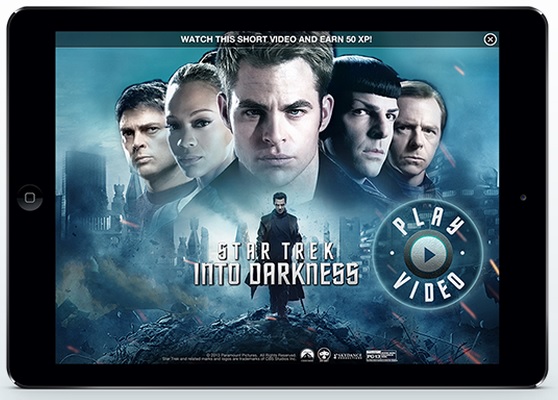Israeli tech firm IronSource has confirmed that it is merging with Supersonic, which specializes in user acquisition and in-app monetization for mobile apps and games. The aim is to create a one-stop shop for mobile monetization solutions that can help app developers scale up the number of users they have as quickly as possible.
Previously, Israeli publications TheMarker and Haaretz reported in July that IronSource had acquired Supersonic in a stock deal as part of a plan to expand its presence in mobile app monetization. We had also heard from a reliable source that no deal had been finalized yet but that talks with multiple parties were ongoing.
Now it’s settled.
The companies say that they will have the largest independent mobile technology platform, reaching more than a billion monthly users and generating an estimated $450 million in revenue in 2015. They say they will provide an end-to-end solution in mobile marketing.
What’s driving this merger: the challenges the mobile ecosystem faces with distribution and monetization.
“Many of the companies are thinking about consolidation in the market and the need for a full-service solution,” said Omer Kaplan, deputy chief executive of IronSource, in an interview with GamesBeat. “The need is clear. It is important to have a single, independent solution. Everybody talks about this, but it doesn’t work without scale. Our combined company will be able to reach a billion unique users and provide millions of daily installs.”
Competitors offering the same services include the major platforms, such as Google’s AdMob, Facebook, and Twitter’s MoPub.
“Consolidation is critical,” says VB principal analyst John Koetsier. “Our latest research indicates that four independents — Vungle, AdColony, Applovin, and ChartBoost — reach at or over two billion uniques monthly. The new IronSource/Supersonic will start to approach this level.”
“And, scale matters. The more uniques you have, the more you can identify individual users, the more installs you see, the more data you acquire, and the smarter you can be about future ad campaigns.”
Kaplan said that the combined company will be able to deal with inconsistencies in the mobile industry, such as cross-screen tracking, mobile targeting, and reporting. The companies will now span mobile analytics, distribution, and monetization. Just as Amazon delivers a one-stop shop for hosting online games and apps, the combined companies want to provide a one-stop shop for running a game or app business, Kaplan said.
Supersonic has been growing its presence in mobile monetization through rewarded video advertising, where a user can gain currency to buy things in a game or app by watching video ads.
App discovery firm IronSource has 550 employees, including 450 in Israel, as well as those in Beijing, San Francisco, and New York. IronSource revenues are estimated at over $300 million a year and the company’s net profit at about $100 million a year. This is the seventh acquisition by IronSource, which was founded in 2010. It delivers more than 6 million targeted installs of apps per day.
The companies will offer a single, centralized software development kit (SDK), which includes mobile video, offer wall, interstitial, display, and full mediation support for all ad products.
Gil Shoham, the chief executive of San Francisco-based Supersonic, said in an interview with GamesBeat earlier this year that more brands are sponsoring video ads that reward players with valuable gear via their favorite apps. And these ads are particularly effective. Finding such monetization alternatives to direct in-app purchases is increasingly important in the highly competitive mobile-game business, where a million rivals are competing for $30 billion in worldwide mobile-game revenues.
In an interview, Shoham said today, “We have been laser-focused on working closely with developers on video mediation and reward-based advertising. It was hard for Supersonic to develop an effective display offering in this space. Now we can bring a single SDK to publishers. Advertisers also asked us about a single solution. Our job is to build the necessary tools for developers to run their businesses.”
He said that developers don’t want to be dependent on a single platform, and that’s why IronSource-Supersonic will be an important alternative.
The video ads — which are provided by a number of big mobile ad networks on Supersonic’s platform — are a good way to keep people engaged and a great way for developers to drive revenue. They work because the ads are targeted at the interests of the gamer or app user. The video ads also spur more conversation between paying and non-paying users.
Supersonic has tripled its revenues every year and has grown to more than 250 employees.
Supersonic’s rewarded video platform is being used by publishers such as Electronic Arts, Kongregate, Gree, Pocket Gems, Pretty Simple, Social Point, and DeNA. Shoham said that the companies will work on new product roadmap in the coming months.
VentureBeat's mission is to be a digital town square for technical decision-makers to gain knowledge about transformative enterprise technology and transact. Learn More


